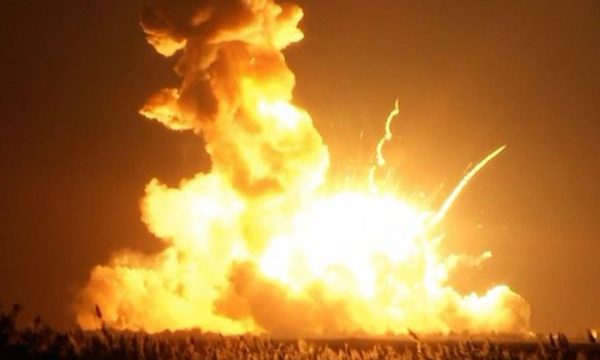Virginia braces for aftershocks from Wallops explosion

WALLOPS, WE HAVE A PROBLEM: The explosion of a private rocket seconds after liftoff could have long-lasting financial repercussions for Virginia.
By Kenric Ward | Watchdog.org Virginia Bureau
The failed launch and fiery explosion at the Wallops Island spaceport this week could blow up Virginia’s projected financial windfall at the commercial site.
The state invested $26 million in 2009 to bring privately operated space flights to the Eastern Shore.
The Mid-Atlantic Regional Spaceport was estimated to generate $4.25 billion for Virginia’s economy through 2020. Now the short-term outlook isn’t so rosy.
“The complex is pretty much toasted. It was like a tactical nuclear warhead going off,” said Keith Cowing, who edits NASAWatch.com.
The question is: Who will pay for the massive repairs, the environmental cleanup and for the $200 million in lost cargo and equipment bound for the International Space Station?
The rocket company, Virginia-based Orbital Sciences Corp., isn’t saying.
“Something went wrong and we will find out what that is. And we will determine the root cause and we will correct that and come fly back at Wallops again,” the company’s executive vice president, Frank Culbertson, said Wednesday. No casualties were reported.
Early speculation blames Orbital’s use of a 40-year-old Soviet rocket engine. Experts caution that other problems could have triggered the explosion that occurred six seconds after liftoff.
With questions still up in the air, neither the company nor NASA nor the state would speculate about the cost of restoring the Wallops site, or who would foot the bill.
Virginia Attorney General Mark Herring’s office was looking into the legal ramifications, but had no answers Wednesday night.
NASA’s only public statement was to warn Virginians not to pick up any debris from the explosion, pointing out that much of the material is hazardous and toxic.
“Does Russia share in the lost cargo too?” wondered Scott Amey, general counsel for the Project on Government Oversight in Washington, D.C.
Amey called the Wallops disaster “disappointing because vendors have been trying really hard to break into the government and commercial launch business.”
Cowing, a former NASA worker, agrees.
“It’s a smart idea,” he said of privatizing space projects. “It’s cheaper and you have competition.”
“Rockets do blow up,” he noted, but added, “Do you want to trust 40-year-old Soviet technology?”
Kenric Ward is a national correspondent for Watchdog.org and chief of its Virginia Bureau. Contact him at (571) 319-9824. @Kenricward







